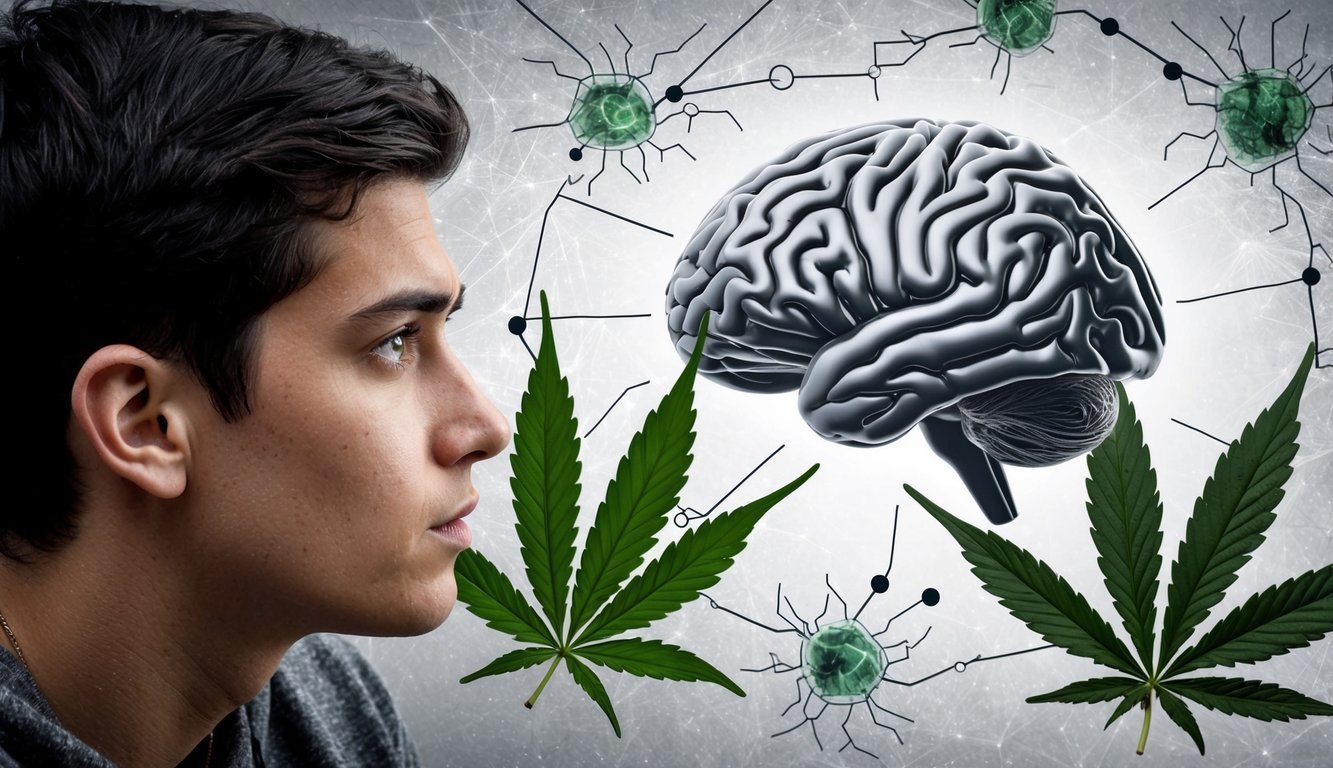PsychNewsDaily Publishers
100 Summit Drive
Burlington, MA, 01803
Telephone: (320) 349-2484
PsychNewsDaily Publishers
100 Summit Drive
Burlington, MA, 01803
Telephone: (320) 349-2484
New research finds that cannabis use in young people at high risk for psychosis may worsen brain connectivity deficits, impacting social functioning and motivation.

A recent study from McGill University sheds new light on the intriguing relationship between cannabis use and brain function in young people who are at high risk for psychosis. This research uncovers concerning evidence that cannabis might deepen pre-existing deficits in brain connectivity and offers fresh insights that could pave the way for more effective treatments, addressing symptoms that conventional medications often miss. In this groundbreaking study, researchers discovered a marked reduction in synaptic density, the foundational neural connections that enable communication within the brain, among people classified as high-risk for psychosis. This finding stands in stark contrast to a control group of healthy peers. The implications are significant, suggesting that cannabis may disrupt essential processes for synaptic refinement—processes critical for proper brain development during these formative years. Exploring the Links Between Cannabis and Brain Health Using advanced brain imaging technologies, the research team evaluated 49 participants aged 16 to 30, encompassing those displaying recent psychotic symptoms and high-risk individuals. The study revealed a connection between decreased synaptic density and symptoms like social withdrawal and lack of motivation—two challenges that can be particularly difficult to treat with existing psychiatric solutions. Traditional medications tend to focus on addressing hallucinations, leaving important aspects of mental health, such as social functioning and academic performance, largely unexamined. The research aims to shift the conversation toward the role of synaptic density in mental health. By concentrating on the connections within the brain, researchers hope to lead the way for new therapeutic strategies that can enhance social engagement and improve the overall quality of life for those affected. It marks a significant step, as it is the first time that real-time structural brain changes have been analyzed in a population vulnerable to psychosis. Future Directions for Understanding Psychosis The findings prompt intriguing questions about the potential for these brain alterations to serve as predictive markers for the onset of psychosis. By identifying these markers, early intervention strategies could be developed, allowing for timely and effective treatment options. Conducted at both the Douglas Mental Health University Institute and McGill University’s Montreal Neurological Institute-Hospital, this research highlights an essential intersection of mental health and neurology, urging both the scientific community and society at large to reconsider our understanding of cannabis use and its lasting impact on the developing brain. As research continues, the hope is that these insights lead to more effective support for young people navigating the complexities of mental health challenges.